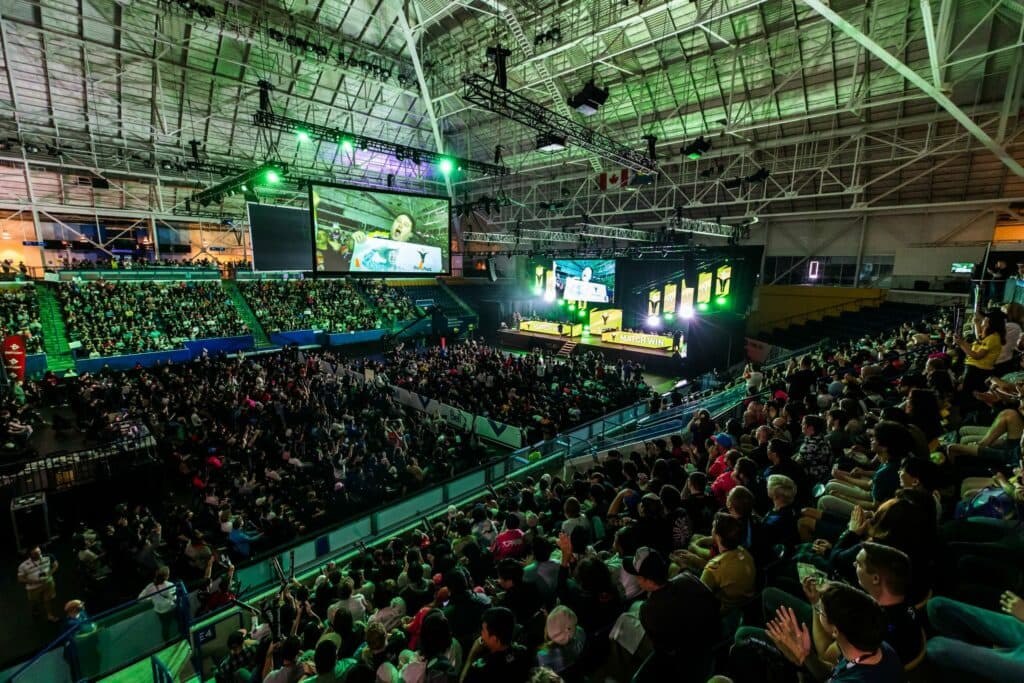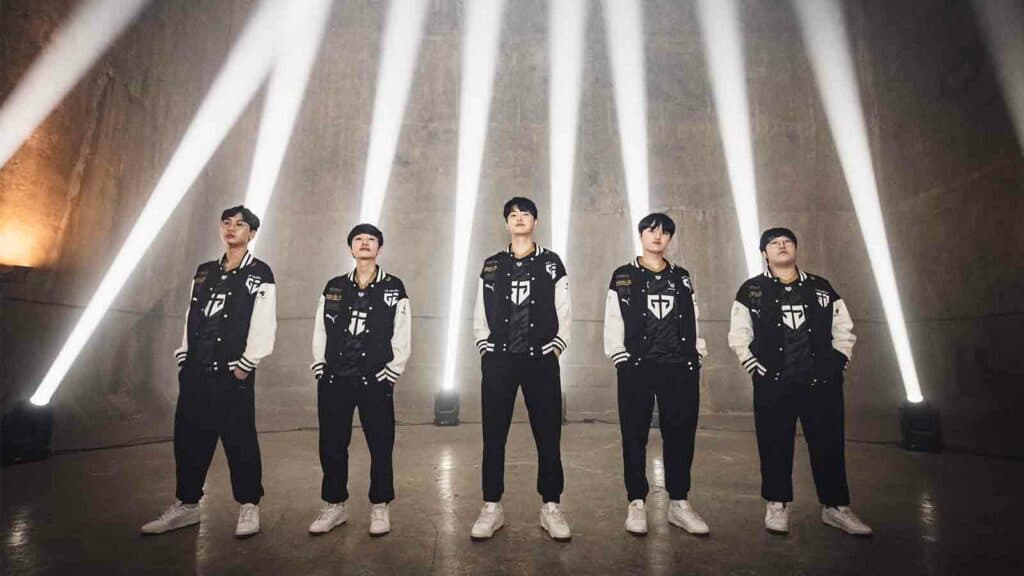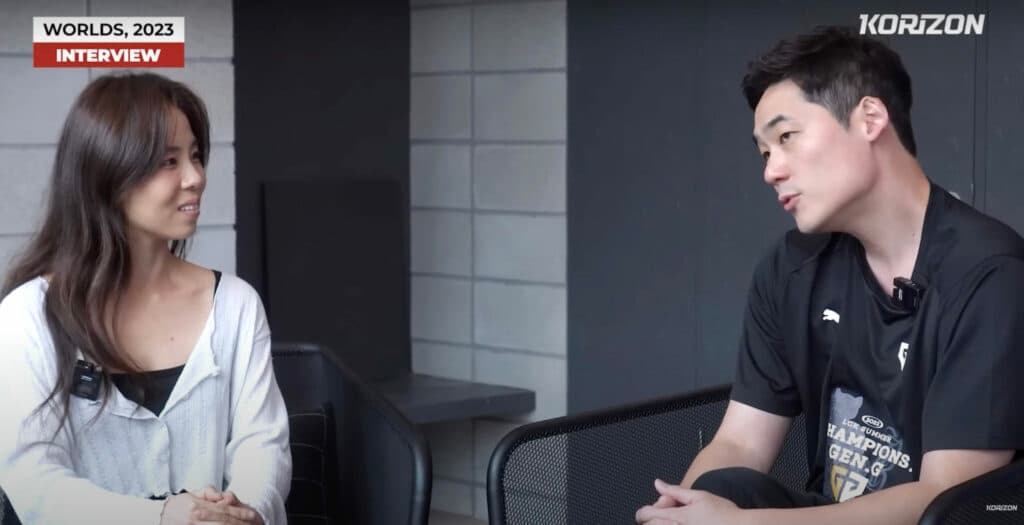Gen.G CEO, Arnold Hurr talks about the Esports Winter and League of Legends esports format in an interview with Korizon Esports’ Ashley Kang.
Esports is one of the fastest-growing industries of recent times. The industry which boasts a massive viewership and a significant interest amongst the younger generation has had brands and investors line up for their piece of the pie. And yet, we hear terms such as the ‘Esports Winter’ floating around, which signal an impending correction in the industry. In a recent interview with Korizon Esports’ Ashley Kang, Gen.G CEO Arthur Hurr shed some light on his views on this topic.
What is the Esports Winter?
A term that does not have a fixed definition, the ‘Esports Winter’ is essentially used to describe a correction in the industry long overdue. The reasons for thoughts of a potential correction are many however, so far, it’s the industry is still going strong and corrections if any, have been minor.
Over the past few years, esports has seen massive interest from mainstream investors and brands who want to capture the attention of the younger generation. The Overwatch League was one of the first International esports Leagues to draw in investors from mainstream media and sports teams. With companies such as Comcast, New England Patriots Los Angeles Rams owners and many more, the Overwatch was a promise for an unparalleled future for esports. The League is now reportedly on the verge of shutting down. Even if it doesn’t actually shut down, there are significant changes expected in the format and the structure of the League in 2024.
Decreasing ad revenue and investor pullouts have further complicated the esports growth story. The TSM-FTX deal was one of the biggest deals in esports history and after FTX’s financial troubles, it resulted in quite a significant blow for one of the biggest orgs in esports.
I think there are esports growing stages and in the most recent spurt of growth - the past six or seven years, it was really fuelled by a lot of investment into the space. People, from the mainstream investors, all realized this is going to be an incredibly big space. However, all that money invested did not produce the ROI that people wanted in the time period that they wanted to.
They key concept here is ‘the time period that they wanted to’. Esports has seen organic growth through grass roots programs and initiatives. Some of the biggest games today, such as Dota 2 and Counter-Strike were possible because of the community-led development efforts.
The past six or seven years have seen immense investments in the space, however, the expectations for returns were in a very short time frame. In contrast, physical sports has had decades, if not centuries to develop at the grassroots level and further cement itself as a ‘sport’. Esports not only competes with physical sports for attention, but also, in general, the internet. As such expecting esports to grow at an exponential rate in a very short period is quite surprising.
Why does esports have a growth problem?

"If you see a coffee shop and that coffee shop makes the world’s best coffee. If the coffee costs more than what people are willing to pay for it, no matter how excited they are about the coffee shop, how excellent it is, At the end of the day, if the coffee costs more than what people are willing to pay for it, that coffee shop is not going to last."
Mr. Hurr puts it very succinctly as he describes the problem at its core. Esports teams, events, and the industry in general cost more than it pays. And that is the essence of the problem. Esports teams and orgs need to constantly raise money to sustain the industry and raising money comes with expectations.
Esports is also quite different from physical sports and it is mostly due to its digital nature and the accompanying business models. The Overwatch League tried to create a Global League with teams across multiple continents. However, a Home and Away system would not work in esports and the abnormally high costs were part of the reason.
Coming back to the digital nature of esports, Mr. Hurr points out that it isn’t a case of esports fans not spending. In fact, in the past year and even before that we’ve been reading articles about massive stadiums filled to the brim with fans. Fans travel across continents to witness their favorite teams in action. But the esports fan’s spending pattern doesn’t always mimic that of physical sports.
While physical sports have jerseys and merchandise as a big part of their sales, esports fans are more inclined to buy in-game content.
"I still see green shoots, small signs of the thawing of the winter into the future. And I think esports is going to continue to grow," Arnold Hurr told Ashley Kang. "I'm really excited by how many people bought the emotes and much more leagues. More leagues are moving towards a digital model All these people that play League and watch esports. Some fans want to buy jerseys but the vast majority want to buy something in the game.
Almost all esports titles now offer some variant of esports digital collections in the game. Part of these sales go towards directly supporting the participating teams. For several years, Dota 2 has boasted the highest prize pool in esports, (tens of millions of dollars) just via crowdfunding. Mobile Games such as PUBG, Arena of Valor regularly put out new in-game content that goes towards supporting content creators and teams in the game.
What about other ways to make money?
"We aren't making any money from any single match that we play," said Arnold Hurr in the interview. "Media rights, the actual viewership of that is, you know, Media rights aren’t being sold for any money anymore. If you look at the PNLs of LCK, or League teams or esports in general, it’s all in the red. It’s all unsustainable. This is the root cause of the esports Winter."
Further in the interview, he also discusses how Riot is using its lessons learned from League Of Legends and incorporating it in VALORANT. With esports carving its way ahead and opening up new revenue opportunities, most of which are digital, the future of the industry might lie in a digital-first approach.
Riot Games has a long tradition of digital music launches, in-game team content, and more. Other titles such as Dota 2, CS:GO and Overwatch have also commanded a digital-first approach when it comes to monetizing their games.
Is a Digital revenue approach the right way forward?
In a question to whether League of Legends should be more active in the way teams can create revenue through a digital approach, the Gen.G CEO said it absolutely has to.
I think it absolutely has to if it’s to have a future. We have to recognize that if you're moving to a digital-first model the League needs to be global.
Hurr further added that there’s just not enough revenue within Korea to sustain the ecosystem. Gen.G qualified for Worlds 2023 via the LCK Summer 2023. (League of Legends Champions Korea ) They finished 5-8th at Worlds 2023 after a 2-3 loss to Bilibili Gaming.

He went on to further explain the term global in this context, which is less of an Overwatch League style truly global League but more in synergy with the VALORANT esports format.
"By Global I mean why didn't we run a super league? Why don't we take a lot of the lessons that Riot has taken and has changed the system to be for VALORANT?," Mr. Hurr thought aloud. "It’s a very simple thing.I think what Riot has done and moved the system towards is what the VALORANT model is- which is a digital-first revenue stream, an APAC regional game and a regional League centered in the best place in the world for esports. I think if the LCK did that, if we create a Super League, if we add a Vietnamese team, a Japanese team then you get a Global League in APAC. It’s kind of in a similar time zone. It opens up opportunities for sponsors and media rights, maybe you can sell more emotes to more markets. Then you have a system where you can bridge the shortfall between what is currently the cost of running a team and what the revenue opportunities are."
Gen.G loses between two to three million dollars every year said the Gen.G CEO. And this is despite the team not being the highest-paying team. He feels the system is broken and therefore he is continuing to call for more changes to the system. Expanding the League, or in his words, Globalizing the League is what he thinks is a good solution to increase revenues.
Regardless of his apprehensions about the Esports winter, he is confident that esports will continue to grow. There are signs of hope in terms of revenues for some teams. Game developers and organizers are taking steps to benefit the entire industry. Riot has traditionally shown an inclination to work with all parties involved to ensure a sustainable industry. So while esports is an industry that is promising and will almost surely grow, it's a battle of expectations versus practical reality that determines the industry's short-term growth potential. We highly recommend giving the entire interview a watch. You can catch the interview on the Korizon Esports YouTube Channel here.
Stay tuned to esports.gg for the latest League of Legends news and updates.
